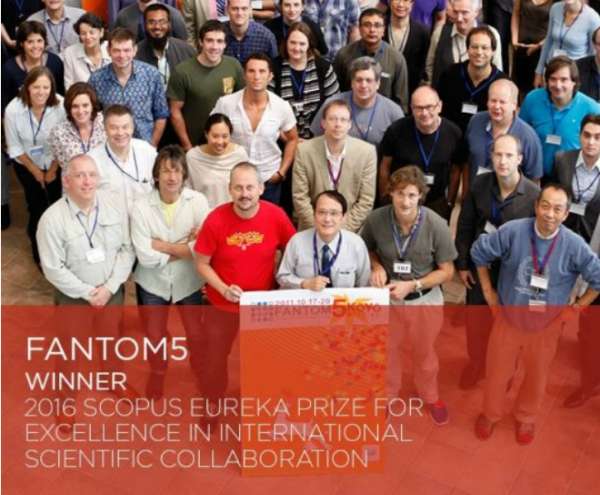Genetic diseases, infection, cancer targeted by WA gene project

A Perth-led project to map the genes used by different cell types in the human body is preparing to release its latest results following a win at the prestigious Eureka Prizes.
The Functional ANnoTation Of the Mammalian genome (FANTOM5) collaboration paves the way for medical researchers to understand genetic diseases, infection and cancer by building an atlas of genes and where they are used.
The project involves more than 260 researchers in 20 countries, and in August was awarded the Eureka Prize for Excellence in International Scientific Collaboration.
Harry Perkins Institute of Medical Research systems biologist Professor Alistair Forrest, who leads FANTOM5, says the project aims to map where all the genes are and which genes are used in which cells types.
"We're made up of hundreds of different cell types… they all have specialised roles and to perform those specialised roles they have different sets of genes that they use," he says.
"We're interested in trying to identify what sets of genes are used in cells that make up your eye versus the cells that make up your liver, heart etc."
Most of the project's data was made publically available in 2014 and Prof Forrest says more is expected at the end of the year.
"People have been reanalysing the data and asking different questions and it's really cool because what they're starting to use it for is disease gene association," he says.
"They're looking at genetic diseases and the want to know what genes are expressed in bone, for example, when they're looking at bone disease or in the brain when they're looking at neurological disorders."
Prof Forrest started FANTOM5 while based in Japan and was lured to WA as the inaugural senior cancer research fellow funded by Perth philanthropic venture the Cancer Research Trust.
He says the collaboration is about a big group of people working together for a common goal rather than competing against each other.
"There's a lot of little patchy science where people don't want to talk about their results in case someone's going to scoop them," he says.
"But working together in a collaboration where you're trying to achieve something big… it's really fun.
"It really supports development of early career researchers so I like that component of it."
WA was also represented at the Eureka Prizes by Professor Phil Bland and the Fireballs in the Sky team from Curtin University, who took out the Innovation in Citizen Science category for their network of 49 digital cameras that capture fireball trajectories through the night sky.
This article first appeared on ScienceNetwork Western Australia a science news website based at Scitech.
















